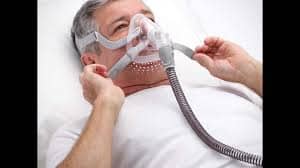
For many people living with sleep apnea, continuous positive airway pressure (CPAP) therapy is a life-changing treatment that restores deep, restful sleep. However, even the most advanced CPAP machine can become frustrating when the mask doesn’t fit properly. Poorly fitted CPAP masks not only reduce therapy effectiveness but also create discomfort, leaks, and even emotional stress that can erode confidence in the treatment process.
CPAP Mask Leaks: The Hidden Barrier to Effective Sleep Apnea Therapy
One of the most common problems with poorly fitted CPAP masks is air leakage. When the seal between your face and the mask isn’t tight, pressurized air escapes — reducing the airflow needed to keep your airway open. This leads to fragmented sleep, snoring, and lingering fatigue even after hours of CPAP use.
Leaky masks also cause dry eyes, nasal irritation, and noisy airflow, making it hard to stay asleep. Over time, these issues may cause frustration and make users question whether CPAP therapy really works for them. Regular mask fitting checks and cushion replacement are key to preventing this problem.
Skin Irritation and Pressure Sores from Tight CPAP Masks
A mask that fits too tightly can be just as harmful. Continuous friction or pressure against the skin can lead to redness, irritation, or even open sores — especially around the bridge of the nose and cheeks. Users with sensitive skin may also develop contact dermatitis from certain mask materials.
If you wake up with visible marks or soreness, it’s time to reassess your mask fit. Switching to softer cushion materials, using mask liners, or exploring different mask styles (nasal pillows, full-face, or nasal masks) can dramatically improve comfort and confidence in nightly therapy.
CPAP Discomfort and Breathing Difficulty: When Fit Impacts Function
Another side effect of improper CPAP mask fit is difficulty breathing comfortably. A loose seal can cause pressure fluctuations, while an overly tight fit may restrict natural breathing. Some users describe the sensation of “fighting the air” or feeling claustrophobic under the mask.
Modern CPAP machines often include exhalation relief settings or auto-adjusting pressure features to ease this discomfort. If breathing feels unnatural or forced, talk to your sleep specialist about fine-tuning your pressure settings or trying a different mask design.
Emotional and Confidence Impacts of Poor CPAP Fit
The physical discomfort caused by poorly fitted CPAP masks often leads to emotional distress. Struggling with leaks, marks, or restless nights can make users feel self-conscious or discouraged. Many eventually skip therapy sessions, believing CPAP simply “doesn’t work” for them — when in reality, the mask fit is the issue.
Restoring comfort through a proper fit can rebuild confidence, leading to consistent use and improved energy, mood, and overall health. CPAP therapy should enhance your quality of life, not become a nightly source of stress.
How to Achieve a Perfect CPAP Mask Fit
Schedule regular mask fittings with your sleep equipment provider.
Replace mask cushions every 3–6 months for a reliable seal.
Use gentle mask liners to prevent skin friction and irritation.
Clean your mask daily to remove oils that weaken the seal.
Explore different mask types to find one that complements your face shape and sleeping style.
Final Thoughts
Poorly fitted CPAP masks can silently undermine your sleep apnea therapy — impacting both your physical health and self-confidence. By prioritizing comfort, ensuring proper fit, and addressing leaks or irritation early, you can turn your CPAP experience into a source of renewal and confidence rather than frustration. Remember: the right mask doesn’t just help you sleep — it helps you live better.
